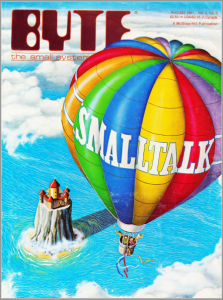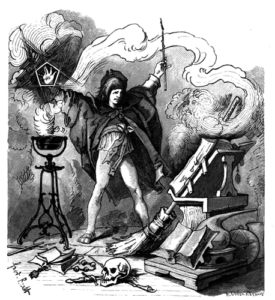 I’ve had the pleasure of leading the design of a number of projects that have had some impact. These include a mobile app a company could point to. Also a game that helped real kids. Even a context-sensitive performance support system that was worth a patent. Then, of course, are the projects that didn’t, for whatever reason, see the light of day. So here are some reflections on a few projects that didn’t fly.
I’ve had the pleasure of leading the design of a number of projects that have had some impact. These include a mobile app a company could point to. Also a game that helped real kids. Even a context-sensitive performance support system that was worth a patent. Then, of course, are the projects that didn’t, for whatever reason, see the light of day. So here are some reflections on a few projects that didn’t fly.
Back in the mid-90s, I was part of a government-sponsored initiative in online learning, and we were looking for a meaningful project. We made a connection to two folks with a small company that taught about communicating to the press. They could’ve come out with a book, but they wanted to do something more interesting. We collaborated on an online course on speaking to the media. I partnered with an experienced digital producer, and backstopped with a university-based media team. We had a comic skit writer, and cartoonists, to augment our resources. The result was technically sophisticated, educationally sound, and engaging both visually and in prose. It never flew, however, as we didn’t partner it with a viable business model. Which was reflective of the times.
Then, at the end of the 90’s, I was asked to lead a team developing an adaptive learning system. The charge was to help learners understand themselves as learners. I had a stellar team: software engineer, AI expert, psychometrician, learning science guru, visual designer, and an interface designer. The model was to do an initial profile, then present you with learning elements (concepts, examples, practice, etc) and update your model based on your performance. There was even a machine learning component to improve the models as we went along. We actually got a first draft up and running (10 elements in the student model), before ego and greed undermined and killed it. The lessons learned, of course, have continued to inform me, including, for instance, my calls for content systems.
Then, around the mid-2000s, I was given the task to devise a content model for a publisher. They wanted to develop once and populate a variety of business products. Drawing on previous experience, I developed a robust model, which started from individual elements and supplemented and aggregated them in a systematic way. This also ended sadly. In this case, the software side never reached fruition.
There are lots of reasons good intentions can go awry. In my case, it wasn’t going to be on a lack in the learning design ;). What I’ve learned, however, is that learning design isn’t the only element that matters. There’s vision, and execution, and partners, and more. All are ways in which things can go wrong. Yet, that doesn’t mean we shouldn’t try. It just means that we should, to the extent of our abilities, also try to ensure the success of the other comments. It’s worth exploring projects that didn’t fly so as to see how future ones might.



